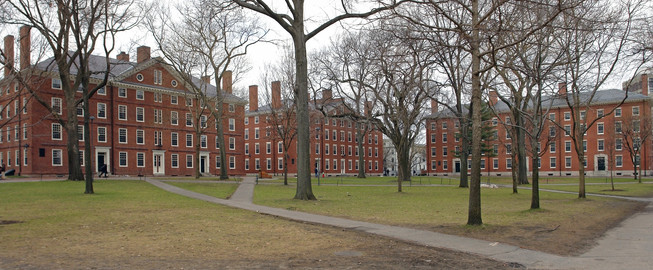Let’s Get Real: Harvard’s “Turning the Tide”
A thoroughly researched and well-written report from the Harvard Graduate School of Education, “Turning the Tide”, has caused much ado in the admissions community since its release last June. All eight Ivy League Deans of Admissions and many other VIP’s in the admissions field have endorsed the Report and its laudable goals.
The Report advocates two major reforms. First, in order to improve the personal values of students, applicants should be involved in “meaningful community engagement”. Second, the overall admissions process should be simplified to reduce the stress of building an excellent academic record while also engaging in community service.
These are fine objectives. The need to simplify the process is obvious to all who have undergone the admissions experience as a student or parent. And to encourage youths to learn the value of contributing to society through community service is certainly a noble purpose. But we need to consider what unintended consequences may ensue from these reforms and to assess whether they’re practical and realistic.
Richard Weissbourd, co-author of the Report, said that, “Too often, today’s culture sends young people messages that emphasize personal success rather than concern for others and the common good. As a rite of passage, college admissions play a powerful role in shaping student attitudes and behaviors.”
The basis for Weissbourd’s assertion lies in the results of the scientific survey conducted for the Report. Over 60% of high school student respondents indicated that their reason for going to college is to make more money. A majority of these respondents indicated that their parents had instilled this motive in them. Only 22% of students responded that caring for others was more important than personal happiness or individual accomplishment.
So, Weissbourd’s point is well founded. The unpleasant fact that selfishness mars the value systems of many youths is supported by the data. This condition cries out for remedy. However, “meaningful community engagement’ as the remedy has its downside. It requires that even more time be devoted to admissions-related activities. To prevent this, the Report recommends several measures intended to simplify the admissions process.
However, if there’s beauty in simplicity then the college admissions process is ugly to behold. It’s frustratingly complicated. But its complexity is due to conditions that are unlikely to change.
- Admission to an elite institution is intensely competitive. At the most, about 10% of students can be accepted from a highly qualified pool of applicants. As a result, colleges must determine which applicants best fit their desired profile by applying a diverse range of criteria that weigh both academic achievement and personal abilities.
- Macro forces are brought to bear on elite institutions to influence their selection criteria. Influencers include political, governmental, religious, economic, minority advocacy, commercial, scientific, and technological factors. They cannot be completely ignored.
- Even though high schools strive to offer the courses that colleges want, the 30,000 high schools in the U.S. are not equal in academic quality. Each admissions office must develop its own methodology to equate GPA’s earned at different schools. This adds to the complexity of the process.
The Report’s recommendations, meant to simplify the admissions process, are not as simple as they seem. Three of the major ones are described below.
- Optional Testing: Despite the unfairness of certain aspects of the SAT/ACT tests, they provide an unambiguous means of comparing the readiness of applicants for college work. The Harvard Report advocates a test-optional policy. Yet students will continue to take the tests unless all of the colleges on their targeted list are test-optional. As college admissions counselors, IvySelect recommends that a student target 12 to 13 colleges. Since most highly selective colleges are likely to retain the testing requirement, this policy won’t reduce test-taking stress.
- Financial Aid Scholarships: Private colleges and universities are not-for-profit businesses, but they are businesses nonetheless. They need sufficient revenue through tuition and fees to generate a self-sustaining surplus. Many have large endowments, but it’s not for third party coalitions, such as the one being formed around the Report’s findings, to dictate how an institution is to use its own funds in awarding scholarships based on need. Thus, the lack of uniformity in approach to financial aid inhibits simplification in this aspect of admissions.
- AP Courses: The Report recommends that students avoid taking too many AP courses. However, as long as admissions officials seek AP results as evidence that an applicant will do well in college, this advice is unwise. Admissions officials will continue to reward a student who did well in, say, eight AP courses over the student who did well in two, when the student’s school offers a large number of AP classes.
Rather than reducing stress for students who aspire to attend top-tier institutions, the Report’s recommendations are more likely to intensify it. To reduce and manage the stress of admissions to elite colleges and universities, your best solution is to rely on the expert guidance of your IvySelect college admissions consultant.





